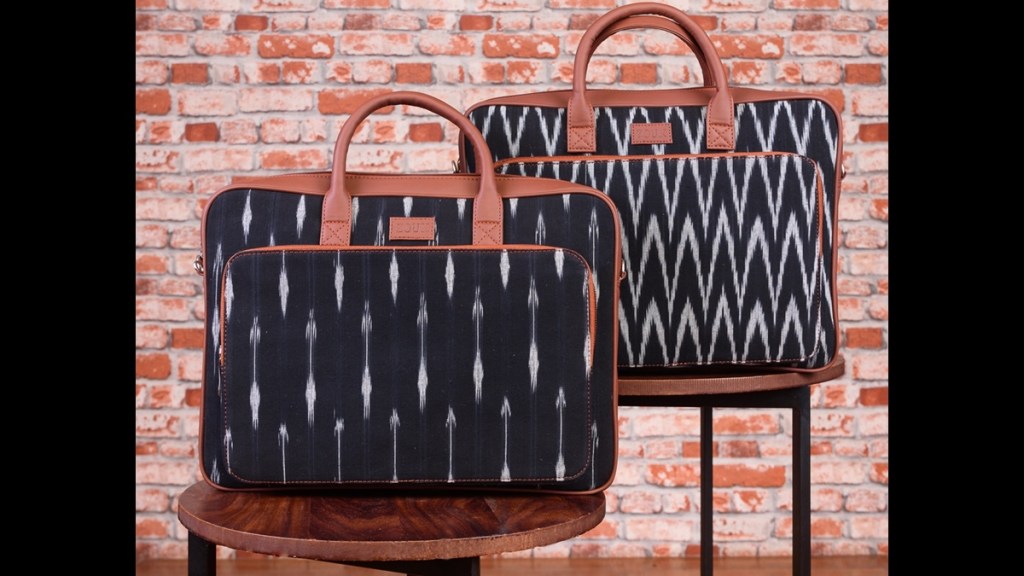For long, domestic brands such as Hidesign, Da Milano, Baggit, and Lavie have been the top names in the branded bags and accessories market in India, and international brands such as Michael Kors and Burberry have enjoyed a place of prominence in the high-end segment. Lately, this space has seen several new-age brands emerge, as a result of evolving consumer preferences and the proliferation of e-commerce. Brands such as Zouk, Hamelin, Miraggio and Arture are trying to get a toehold in the market, with a promise of innovative and eco-friendly designs, and traditional patterns. According to Pakhi Saxena, head of CPG and retail, Wazir Advisors, this market stood at $5.75 billion in 2021, and is expected to reach $14.5 billion by 2024.
Mixed bag
Launched in 2016, Zouk offers 150 SKUs in categories like laptop bags, office bags, handbags, sling bags, hobo bags, tote bags and wallets. The brand plans to add backpacks as a new category this year. Its designs are primarily inspired from Indian motifs, prints and fabrics. Targetted at women in the age group of 20-45 years, Zouk sells its products on marketplaces like Amazon, Myntra and Ajio, apart from its own website. “We want to explore offline retail this year. Our goal is to become a Rs 100 crore brand by the next financial year,” says Pradeep Krishnakumar, the company’s co-founder and COO.
Miraggio, which launched in October 2019, targets millennial and Gen Z women. The company has a range of handbags, crossbody bags, shoulder bags, tote bags, and clutches, which it sells on its own website as well as on fashion marketplaces such as Myntra and Nykaa Fashion. Next on its list are sunglasses, jewellery, and small leather goods. “Our plan is to grow to more than 500 SKUs by the end of this year,” says founder Mohit Jain. Miraggio also plans to open retail stores/ kiosks at airports in India this year.
Apart from wallets and bags, Hamelin has diversified into planter wraps and desk accessories, and plans to launch more products in the home decor space this month. “We use a variety of materials such as tweed, jute, jacquard, ikat and khadi to create our products. Our bestselling categories include sling bags and wallets at an average price point of Rs 1,500,” says Madhumita N, founder and CEO, Hamelin.
Arture, which offers a mix of card cases, wallets, travel accessories, sling bags and belts, plans to enter the backpacks category this year, followed by footwear in the coming years. “Our products are not just sustainable and vegan, but are designed with a focus on functionality and minimalism,” says Shivani Patel, founder, CEO and creative director, Arture.
Most of these players have plans to foray into international markets.
Question of sustainability
While these brands are seeing growth, one of the key challenges would be scaling up, says Sameer Amte, MD and lead (retail), Accenture India. Standing out amidst a sea of new launches in the bags and accessories segment would be crucial. Analysts say it is imperative for these brands to be clear on their positioning, their customer profile, branding, and packaging.
Kapil Makhija, CEO, Unicommerce, says, “Another challenge is running the operations profitably. These brands have to see how they can build a profitable and scalable business if they don’t have access to funding.”
Amte says that these new-age retail brands need to focus on three key areas while keeping a laser-sharp focus on profitability — hyper-personalisation by adopting advanced data and analytics capabilities, offering an omnichannel experience, and building an agile, customer-centric supply chain that helps cater to the fluctuations in demand.
Read Also: How fantasy gaming industry will perform in 2022

